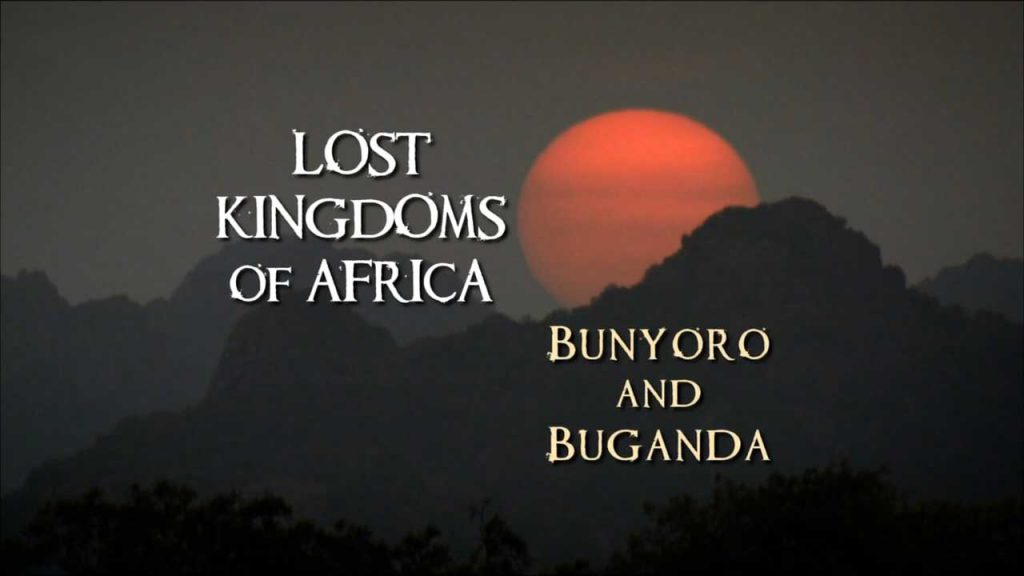Lost Kingdoms of Africa episode 8 – Bunyoro and Buganda: Casely-Hayford travels to Uganda to explore the rise and fall of two great kingdoms. For centuries Bunyoro was the region’s dominant power, using history and mythology to make a claim on the land. But its position was challenged by the rapid rise of Buganda, a neighbouring kingdom that had once been a collection of cultivators on the shores of Lake Victoria. Casely-Hayford goes in search of the fascinating reasons for the dramatic reversal of fortunes, and how one kingdom used the arrival of Europeans to its own advantage.
We know less about Africa’s distant past than almost anywhere else on Earth. But the scarcity of written records doesn’t mean that Africa lacks history – it is found instead in the culture, artefacts and traditions of the people. In this series, art historian Dr Gus Casely-Hayford explores some of the richest and most vibrant histories in the world, revealing fascinating stories of four complex and sophisticated civilisations: the Kingdom of Asante, the Zulu Kingdom, the Berber Kingdom of Morocco and the Kingdoms of Bunyoro & Buganda.
Lost Kingdoms of Africa episode 8 – Bunyoro and Buganda
Bunyoro, East African kingdom that flourished from the 16th to the 19th century west of Lake Victoria, in present-day Uganda. Bunyoro was established by invaders from the north; as cattle keepers, the immigrants constituted a privileged social group that ruled over the Bantu-speaking agriculturalists. The kingdom continued to expand under its priest-kings until about 1800, when it started to lose territory to its neighbour, Buganda. Bunyoro’s last ruler, Kabarega, was deposed in 1894 by the British, who favoured Buganda; the kingdom was absorbed into the British protectorate in 1896.
Buganda, powerful kingdom of East Africa during the 19th century, located along the northern shore of Lake Victoria in present-day south-central Uganda. Buganda’s insistence on maintaining a separate political identity contributed to Uganda’s destabilization after that country reached independence in 1962.
Buganda was one of several small principalities founded by Bantu-speaking peoples in what is now Uganda. It was founded in the late 14th century, when the kabaka, or ruler, of the Ganda people came to exercise strong centralized control over his domains, called Buganda. By the 19th century Buganda had become the largest and most powerful kingdom in the region. The local chiefs of conquered areas ruled as personal appointees of the kabaka, who had a sizable army at his disposal.




